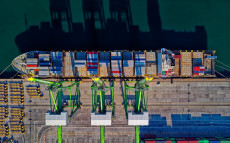- pathfindersAI
- Job Profile
Transit and Railroad Police
Summary
Transit and Railroad Police: Guardians of Railway Safety
What They Do
Transit and Railroad Police play an indispensable role in maintaining the safety and security of our nation's railways and public transportation systems. These specialized law enforcement officers serve to prevent crimes, protect passengers and workers, and ensure that transit operations run smoothly. Their jurisdiction encompasses vast railway networks, encompassing passenger trains, freight trains, stations, and surrounding areas. They are adept at addressing the unique challenges presented by this specialized environment, from deterring theft and vandalism to responding to accidents and emergencies. These officers serve as the guardians of transit systems, providing peace of mind to millions of daily commuters.
Job Responsibilities
Transit and Railroad Police are tasked with a broad array of responsibilities designed to ensure the safety and order of railway environments. They conduct regular patrols on trains and within stations, scrutinizing activities for any suspicious behavior. These officers are responsible for enforcing laws, regulations, and ordinances pertaining to the transit system. They respond to and investigate incidents such as theft, assault, and vandalism, preparing detailed reports and collaborating with other law enforcement agencies as necessary. Additionally, they manage emergency situations like derailments or hazardous material spills, working to evacuate and assist passengers while coordinating with emergency services. Their work also involves liaising with community members and transit authorities to foster a secure and welcoming travel atmosphere.
Essential Skills
A career in Transit and Railroad Police demands a blend of specific skill sets. Physical fitness and stamina are crucial, given the physical demands of patrolling large transit areas and responding to emergencies. Equally important are strong observational skills and keen attention to detail, enabling officers to detect and address potential threats proactively. Effective communication is paramount, as officers must clearly articulate instructions, interact with the public, and compile comprehensive incident reports. Additionally, critical thinking and problem-solving abilities are essential for navigating complex situations under pressure. Adaptability and resilience round out the necessary attributes, helping officers remain composed and efficient in the dynamic and often unpredictable environment of public transportation.
Educational Pathways
Entering the field of Transit and Railroad Police typically involves a combination of formal education and specialized training. Most candidates pursue an associate's degree or a bachelor's degree in criminal justice, law enforcement, or a related field. These programs offer foundational knowledge in areas like criminal law, ethics, and investigative techniques. Post-graduation, aspiring officers must complete police academy training, which provides rigorous preparation through both classroom instruction and physical training exercises. Some agencies may offer additional transit-specific training modules to equip officers with knowledge pertinent to railway systems. Continuing education and certifications can also enhance prospects, with ongoing training in areas such as emergency response, conflict resolution, and advanced law enforcement technologies keeping officers adept and informed throughout their careers.
Career Prospects
The demand for skilled Transit and Railroad Police remains steady, driven by the need to safeguard the expanding networks of public and freight transportation. Employment opportunities are available with railroad companies, urban transit systems, and various government agencies. The Bureau of Labor Statistics projects a stable outlook for police and detective positions, including specialized transit roles. With experience and additional training, individuals might advance to supervisory or administrative roles, overseeing teams of officers or managing security operations. The evolving landscape of public transportation, combined with advancements in technology, also paves the way for varied roles, from cybersecurity to emergency management, broadening the scope of career advancement for dedicated professionals in this field.
Conclusion
Choosing a career as a Transit and Railroad Police offers a unique and fulfilling opportunity to contribute to public safety within a specialized domain. These officers perform critical duties to ensure the protection of passengers, workers, and infrastructure, handling a diverse array of challenges with skill and resilience. With a solid educational foundation and a commitment to ongoing development, aspiring individuals can embark on a rewarding career path that combines public service with the dynamic environment of transit and railway systems. As guardians of the railways, they play a crucial role in the operational integrity and safety of this vital mode of transportation.
Video
Compensation
Similar Occupations
In this area you will find other occupations that are close to the one you were viewing in tasks, knowledge and work environment. If the primary job profile you are viewing isn't quite to your liking, take a look around and see what else is available.
Basic and Premium Accounts have more alternative occupations available than the Free account.

Compliance Officers - 13-1041.00
A Compliance Officer ensures that a company adheres to internal policies and external regulations to mitigate risk and avoid legal issues. They conduct audits, develop compliance programs, and provide guidance to ensure that the organization's operations comply with relevant legal and regulatory standards.
-
$75,670/yr
Median Pay -
383,620
Number of Jobs

Customs and Border Protection Officers - 33-3051.04
Customs and Border Protection Officers are responsible for safeguarding the nation’s borders by preventing the illegal movement of people, drugs, weapons, and contraband into the United States. They inspect cargo, vehicles, and travelers, and enforce immigration laws to ensure the security and regulatory compliance at ports of entry.
-
$72,280/yr
Median Pay -
646,310
Number of Jobs